|
George W. McCoy Collection
|
M1978.01.02 |
|
General Thomas Love...and his brothers Robert and James by Robert A.
Love |
|
Box |
File |
item# |
Description |
Thumbnail |
| 2 |
7 |
gmc_092 |
GENERAL THOMAS LOVE
of
WESTERN NORTH CAROLINA. AND WESTERN TENNESSEE
and
HIS BROTHERS ROBERT AND JAMES
By:
Robert A, Love
5015 Seminole Road
St. Petersburg 8,
Florida
|
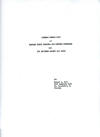 |
| gmc_093 |
FOREWORD
I am writing the foreword as I finish the
booklet. General Thomas Love, the booklet, has been a most
interesting study for me, and I do not recall any other previous
effort that has afforded as much pleasure. I am truly hoping that it
will bring to the reader similar rewards.
Naturally, in a booklet of this size a
complete story of a life so full of ambition and achievement as that
of General Thomas Love cannot be told, I have much more material at
hand concerning him and his life and deeds but was compelled to
choose only those which seemed most important, I have given little
of tradition, and have avoided giving mere opinions of some, where
mere facts are not proven.
In my work I have been very graciously
assisted by several persons and am greatly indebted to all, in
particular to my "cousin by desire", as he puts it, Brig, Gen,
(ret.) Albert Gallatin Love, from whom I have quoted very freely,
and from his book "The Love Family of Trezevant, Tennessee"; to John
M. Welch of Dukedom, Tennessee; Thomas H. Bailey of Kingsport,
Tennessee, Albert Lee Love, Palmetto, Fla., and to Mrs. Margaret
Love Marshall, Waynesville, North Carolina.
And now to them and to the original twenty
subscribers, Dr. Cyril E. Cain, David B, Love, Mrs, Wm. D. Scranton,
Albert Lee Love, Gordon Love, Dr. S, Glenn Love, Mary H, Scott, Mrs,
Elsie B. Hagen, Mrs. George D. Warner, Mrs. Florolle Love Palmer,
Mrs. Frances C. Dale, Gen. Albert G. Love, Thomas H. Bailey, Mrs.
Edgar A. Brown, Mrs. Burnie Love Young, Mrs. W. E. Love, Mrs. Patti
Leavitt, and H. L. McGeorge, Sr., I dedicate this little booklet
with the best of wishes, "to them, their heirs and assigns forever".
Sincerely,

|
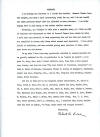 |
| gmc_094 |
- TABLE OF CONTENTS ~
Introduction
Family Background
Tinkling Spring-Spring and Church and
Community
Other Loves in Augusta County
Children of Samuel and Dorcas Bell Love
Joseph and Mary Teas Love - their children
Robert and Jean Roane Love - their children
Samuel and Joseph Love and Families move
Will of Samuel Love
Thomas Love a Teen-Ager-Experiences in
Cherokee War
Samuel Love dies-Revolutionary War records,
Robert and James
Robert and Thomas move to Greasy Cove, N. C,
Wedding Bells - Robert made a colonel
Robert and Thomas move to Buncombe Co,, N,
C,
List of land grants to them in Buncombe Co,
More land grants - Haywood Co, Census
Letter from Enumerator Love to Marshal of N,
C,
Description of Haywood County
Tipton-Love-Sevier battle
Thomas Love a general, Sevier surrenders
Andrew Jackson at Jonesboro - Attorney-Gen,
Prosecutor
Jackson and Robert Love quarrel over horse
race
Robert Love in N. C. Legislature
James Love moves every five years-winds up in
Maury Co., Tenn,
James Love member first court in Maury Co,
Thomas Love member North Carolina Legislature
from Buncombe Co,
Introduces resolution to organize Haywood
Co, |
Page
1
2
3
4
5
5
6
6
7
8-12
12-14
14
15
15
16-17
18
19
20
21-26
27
28
28
29
29
29
29
29
|
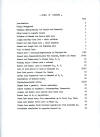 |
| gmc_095 |
TABLE OF CONTENTS (Cont.)
Haywood County erected
Waynesville county seat chosen
Robert a presidential elector
Thomas moves to Macon County-later to Maury
County, Tenn.
Thomas Speaker Tennessee Senate
Clay in Henry County
Arthur's tribute to Robert and Thomas
Thomas makes his will
The will- his death- Robert's death |
2929
30
30
30
31
31-32
32
33-41 |
 |
| gmc_096 |
The families of Love
in the United States have produced many men and women who have
distinguished themselves in the various walks of life and have shed
luster upon the name. As actors, artists, business and professional
men and women, clergymen, scientists, statesmen, writers, military
men, wherever they have found themselves they have acquitted
themselves with credit.
General Thomas Love, a native of Augusta County, Virginia,
(1766-1844.) was a distinguished example of the American boy, son of
Scotch-Irish pioneers orphaned in his teens, who with slender means
at his command, but with proper ambition, and seizing every
opportunity for advancement, at or before middle age had become one
of the most prominent men in his section of the country, owner of a
vast land empire, a military leader in his youth who had helped to
turn the tide of popular opinion against "the Lost State of
Franklin"; a general, and a legislator for 28 years, owner of many
slaves, and a man of great influence as well as of affluence. Of
unimpeachable character, I give you this quote from the historian
Arthur who quotes Colonel Allen T, Davidson in re General Thomas and
his brother Colonel Robert Love: "These two men were certainly above
the average of men and did much to plant civilization in the country
where they lived, and would have been men of mark in any community".1
In his book "The Love Family of Trezevant, Tennessee", Albert
Gallatin Love says: "Certainly we should not disagree with Colonel
Davidson's appraisal of the two men. We, their descendants, can well
be proud of their accomplishments............. .When they moved into
Washington County, North Carolina - (Tennessee) in 1782 they were
orphans with limited means. They prospered and contributed their
efforts in developing better communities there and later in Haywood
Co., North Carolina".
-1- |
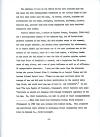 |
| gmc_097 |
Historian Arthur
tells us that the subject of this sketch, General Thomas Love, was
"a man of fine appearance, more than six feet tall, very popular,
and a fine electioneer". As before
stated the parents of Thomas Love were sturdy Scotch-Irish but
probably American born, most likely in Pennsylvania, as we are told
that at least eighty five per cent of the pioneers in the Valley of
Virginia were of that race and originally settled in Pennsylvania.
Some writers have described the Scotch-Irish as a "turbulent" race
from the fact that they stoutly refused to be trampled upon where
their rights, or what they believed to be their rights, were
concerned, and that is the whole of it. Their neighbors in
Pennsylvania did not subscribe to some of their beliefs regarding
the occupation of some lands, and so it is said that they
were
"a headache" to the ministers until they
migrated south to Virginia about 1753;
some a few years earlier.
But to get on with the story - Samuel and
Dorcas Bell Love were the parents of Thomas Love. Dorcas was the
daughter of James Bell, said to have borne the nickname of "South
River" Bell, from the fact that he lived on South River, a branch of
the Shenandoaho Samuel and Dorcas were married according to marriage
records of the Augusta County Court, on Sept.
3,
1759.
It is not known definitely from existing
records who was the father of Samuel, but it is definite that he had
a brother named Joseph, and Judge Franklin Dederick Love in his book
"The Love Family" states that Robert who died and is buried near
Craigatempan was doubtless the ancestor of Samuel and Joseph.
However, there was another Samuel mentioned in the register of
Tinkling Spring Church, as Samuel Sr., and a Samuel who served as
a sergeant during the Revolution, I am
inclined toward Judge Love's theory as it was a custom followed
pretty generally by the Scotch-Irish,
-2- |
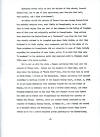 |
| gmc_098 |
to name the first
born son after the paternal grandfather, Samuel and Dorcas' first
born was named Robert, One month after
Samuel and Dorcas married they moved to a place on Christian's
Creek, near Tinkling Spring, We find this record of a deed made in
Augusta County from Thomas and Margaret Black conveying to them 300
acres in the above location, on which they reared their home and set
up housekeeping, and raised their six children. They lived there
until after the death of Dorcas, at an undetermined date. We have
found no record of her death, but when Samuel moved to what was then
Montgomery, now Wythe Co,, no mention is made of her in the move,
and no mention is made of her in the will of Samuel,
Samuel pulled up stakes and moved to a
plantation in Montgomery (now Wythe) county, on a site near the
present torn of Wytheville, in 1774- or 1775, — leaving Tinkling
Spring behind. Here, before we go further with the story a few words
about Tinkling Spring must be told. Tinkling Spring Presbyterian
Church was the only house of worship in the community of which it
was the center. The church is about seven miles east of the
picturesque little mountain city of Staunton (pronounced Stanton),
It is close by the small village of Fisherville. The church stands
upon a knoll in a grove of pine and cedar and is a lovely modern
building. When I visited the spot with Albert Gallatin Love in 1950,
I think it was, we were impressed with the beauty of the location
and the attractiveness of the church, interior and exterior. To the
genealogist who has delved into the history of Augusta County, this
is a "holy of holies", and especially if, as in our case, a great
part of personal ancestral history should be centered around the
spot. There are two cemeteries; a modern one across the road to the
east of the church, and the other across the road in the opposite
-3- |
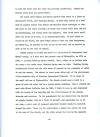 |
| gmc_099 |
direction, leading
to the bottom of the hill and the tinkling spring. Because of the
name, we seem to hear a tinkling, but in reality it is a gurgling
spring of clear cold water, and we drank a little. In the interior
of the church, musing upon the days of long ago when Rev, John Craig
preached from the then pulpit, we were brought back to reality by
the programs of the previous meeting lying around showing that the
church engages in the full program of the modern church. The
building, I learned from my companion, was not the old original one,
which was a log house of 1740,replaced in 1748 by one of stone,
replaced in recent years by the present one. So there was nothing in
the house itself to remind of the past, but the ancient cemetery
across the road to the spring sent us back 200 years in imagination.
The old cemetery is the Westminster Abbey of many prominent families
and many men famed in their country's history are buried
there...Albert Gallatin Love says, quoting Waddell, that there was a
violent controversy about the location of the church of 1749.
Colonel James Patton and Colonel John Lewis disagreed. Reverend John
Craig opposed its location at Tinkling Spring. When the site was
selected, he said angrily "Never shall a drop of water from the
spring trickle down my throat". Others
of the Love families lived near and worshipped at Tinkling Spring,
as we suppose, this being the only church in a vast area until one
was built near Harrisonburg. Ephraim and Daniel Love, brothers;
Joseph and Samuel, brothers, we are certain were communicants there.
Others of the name in the County of Augusta, as then constituted,
before 1800, at one time or another, were Samuel, Sr., Joseph (the
other one), William, John, James, Thomas, and Alexander, and perhaps
others. Reverend John Craig attended to the spiritual wants of a
vast territory, sparsely settled, for many years, but he seemed to
enjoy it, as when a church was built near
-4- |
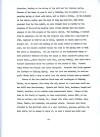 |
| gmc_100 |
Harrisonburg and a
young minister called he is said to have become very indignant
saying that he was fully capable of preaching the way of life to all
the people "in these mountains". Samuel
Love and Dorcas' home on Christian Creek ,we may suppose, to have
been a typical pioneer home of the times - of logs chinked with mud,
with rooms flanking a breezeway in the center, but we cannot say
this with authority, as stone houses were not
exactly rare at that time, and it might
have been built of stone. Opinion though is to the contrary.
It was here that they reared a family of six
children; four sons and two daughters, as follows:
Sons: Robert, b. May 11, 1760
James, b. March 10, 1762
Thomas, b. November 16, 1766
William, date of birth unknown
Daughters: Sarah, date of birth unknown
Mary, date of birth unknown
Brief mention has been made of Joseph, the
brother of Samuel, and we are giving you the following facts
concerning him, as a part of the family background of Thomas.
Joseph married Mary Teas of Augusta Co. Their
children were2
1. Esther, b. Jan. 11, 1770, d. Nov. 18,
1850. M. July 22, 1788,
Wm. Steele.
2. Polly, m. "Stuttering Bill" Calhoun, uncle
of John C. Calhoun.
3. A son killed at Battle of King's Mountain.
A. William, killed by the Harpe brothers, in
Cumberland Mts.
5. Dorcas, m. Thomas Dillard, son of General
Thomas Dillard, of
Pittsylvania Co., Virginia. His wife, daughter of
John Webb, Washington, D.C.
6. Charles L. Love, settled in East Tennessee
and afterwards went to
Mississippi.
-5- |
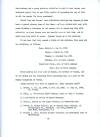 |
| gmc_101 |
Children of ROBERT
Love, son of Joseph, not mentioned in abovelist but shown in a Bible
record copied by Miss Jean Russell, ofConcord, Tennessee:
(Joseph Love d. Nov. 10, 1804, age 76 years)
(Mary Love d. July 1815, age 86 years, 9 months)
Robert Love (son of above) b. Oct. 18, 1754;
d. Sept. 11, 1825.
Jean (or Jane) Roane, b. May 27, 1762; d. Jan. 31, 1826.
Robert Love and Jean Roane were m. June 23,
1782.
CHILDREN
1. Nancy C. b. April 12, 1783, d. April 7,
1816.
2. Mary J. b. November 29, 1784, d. October 15, 1811.
3. Samuel C. b. January 19, 1787, d. December 17, 1821.
4. Sarah H. b. March 25, 1789.
5. Robert b. October 23, 1791.
6. Elizabeth b. April 23, 1794, d. October 7, 1849.
7. Jean (Jane) b. March 10, 1797, d. July 4, 1834.
8. William b. September 15, 1799, d. February 29, 1828.
9. Margaret b. April 13, 1803.
Confirmation of the fact that William Love
married Esther Calhoun is found in the South Carolina Historical &
Genealogical Magazine V. 7, p. 91. and several sources confirm his
murder in the Cumberlands by the notorious Harpes.
Joseph Love migrated to South Carolina and
settled in the 96 District of that state where he had a land grant
in 1785 and must have had others but no record found to date. His
descendants in South Carolina, Georgia, Tennessee and Mississippi
are legion.
Samuel and Joseph moved their families from
Christian Creek to the now Wythe Co. in about 1775. After two
unsuccessful attempts to move to and settle in Carter's Valley,
Tennessee, shortly after, Samuel returned to his Virginia home and
passed the rest of his days there. His will
was made the 2nd day of November, 1780,
and filed for probate and recorded March 4, 1781. His will is not a
very long document but very interesting and especially to any of his
descendants who may read this, not ever having seen the original.
-6- |
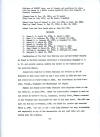 |
| gmc_102 |
It is headed:
WILL OF SAMUEL LOVE
(This copy was generously given to me by
Albert Gallatin Love, III, several years ago)
In the name of God Amen I Samuel Love being
weak in body but of perfect mind and memory do call to mind the
mortality of the body that it is allotted to all men once to die and
after that to come to Judgment. First I bequeath my soul to God who
gave it and my body to the Earth to be Buried at the discretion of
my Executors in hopes to rise again at the General Resurrection in
Christ Jesus. As touching my worldly Estate which God hath Blessed
me with I give and bequeath in manner as followeth viz To my three
eldest sons Robert., James and Thomas I give and bequeath the
plantation whereon I now live to be equally divided between them,
only Robert and James to have improvements. I allow my son Robert
Love to pay my youngest son William Twenty pounds, James to pay him
fifteen pounds, and Thomas ten pounds when William comes to the
years of twenty one they are to pay him in Virginia currency as it
was in the year sixty three Lilcew3.se Robert & James is to give
William a horse and saddle out of their part. My movable estate I
allow to be equally divided between Robert Love, James Love, Sarah
Love, Mary Love and Thomas Love, my children. Each one to have their
part when they marry, move off or come of age.
I appoint Capt. John Stephens and John Adams
to be my whole and sole Executors; and do revoke and disannull all
former wills
-7- |
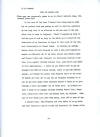 |
| gmc_103 |
and Ordain and
constitute this to be my last will and testament given under my hand
and seal this second day of November in the year of our Lord one
thousand seven hundred and eighty,
SAML. LOVE (SEAL)
Signed sealed and delivered
In the presence of::
Robert Love Senr
James Love
At a Court cond. and held for Montgomery
County March 4th 1781. This will was proven to the satisfaction of
the Court and ordered to be recorded.
Test:
James McCorkle
THOMAS LOVE, A 'TEEN-AGER
As you have seen in the foregoing paragraphs,
Thomas Love was the third child and son of Samuel and Dorcas Love,
The era into which he was born was a bloody and stirring one. He was
born on November 16, 1766 the French and Indian War had commenced in
1763, three years before. The Valley was a frontier in those days,
and men from Augusta were with Braddock when he met with disastrous
defeat from the enemy. Six years before, two Love men, Joseph and
William had been killed by the Indians on the Roanoke, in 1757,
Captain Philip Love was with Colonel Lewis in the Battle of Point
Pleasant, where they administered a severe and bloody defeat to the
redskins.
In 1774- Lord Dunmore's small war came on,
Philip again served as a captain, and Joseph, probably Samuel's
brother was a private. Two years
-8- |
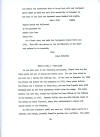 |
| gmc_104 |
later we went to war
with the mother country. The storm clouds of revolution already were
gathering. Then came a day when resentment flared into action and on
July 4, 1776, in Philadelphia, the Liberty Bell rang out its
challenge. Thomas was too young to be
involved, being only ten years of age but his elder brothers Robert
and James, though young served, Robert throughout the war, and James
until 1730.
Robert, at 16, served as a wagoner in the
expedition led by Colonel Christian in 1776, against the Cherokees.
Of this expedition the North Carolina State Colonial Records (V. 10,
p. 833) has this to say: "Reinforced with three or four hundred
North Carolina militiamen, Colonel Christian had been ordered to
raise an army and march to the heart of the Cherokee country. The
Cherokees, cooperating with the British fleet at Charleston, went on
the warpath as soon as they learned the fleet was in port, July 1,
1776, The rendezvous of Colonel Christian was on the Great Island of
Holston, The North Carolina troops were in command of General
Rutherford. Cooperating were South Carolina troops under Gen,
Williamson, Colonel McBury and Major Jack, of Georgia. The Cherokees
were defeated." (This item in the State colonial records was
captioned "Col. Love" but he is not further identified.) It was
during this troublous period that Thomas' father in the winter of
1775-1776 had decided to move from his home in Wythe County,
Virginia to the Holston in Washington County, North Carolina - now
Hawkins County, Tennessee, At his home in Henry County, Tennessee,
in January, 1844, in an interview with Dr, Lyman Draper, Thomas Love
gave this interesting example of how "the best laid plans o1
mice and men, Gang aft aglae". Quote: "Samuel Love with his three
sons Robert, James and Thomas, now aged 16 to 10, had
-9- |
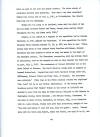 |
| gmc_105 |
gone to the Holston
to settle in Carter's Valley in the winter of 1775-1776, The
location was about 1 to 15 miles below the junction of the north and
south forks of the Holston in what is now Hawkins County,
Tennessee," "Snow knee deep. About
three or four weeks before the Indian invasion, three Indians came
into Carter's Valley, and then passed up the country. No one could
converse with them, and it was afterwards thought they were spies,
Isaac Thomas, an Indian trader, gave information that the Indians
were coming upon the settlement. Every person below the mouth of
North Fork of Holston was in great consternation. In a very few
hours all were on their way to some place of safety, some on
horseback, some in wagons and others on foot. Gen, Love saw numbers
fording the north fork of Holston about half a mile above its mouth
- dashing through pell mell, in the greatest alarm; a father on
foot, with his wife holding on to the skirts of his coat, and
children clinging in their arms, wading across the wide ford,
perhaps some 3 feet deep. Some fled to Virginia settlements who had
friends there, others went to Eaton's and camped in and around the
house, and tore down the fences and took the rails and piled them up
around the house, as a kind of rude enclosure, hence Eaton's Fort",
"General Love has understood that when the
men marched out from the fort they met the Indians at the Island
Flats, Thinking the Indians too numerous, they ran. Finally when the
Indians pressed them too closely, they had to turn and fight,
Tom Price,
an old Indian trader distinguished himself. General Love recollects
James Thompson, though was not aware he was in the battle - lived
somewhere near Seven Mile Ford, and owned Burke's Garden and other
valuable property,"
-10- |
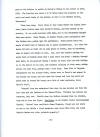 |
| gmc_106 |
"Capt. Cocke,
finding the Indians so numerous and trying to surround the whites-
to outflank, and endeavoring to prevent this, marched so rapidly
that the Indians cut off Cocke and a portion of his company, and 3
or 4 Indians pursued him and prevented him from rejoining the men.
This is what Gen. Love has always heard and believes was so. Gen.
Love thinks it was towards the last of June, being a new ground, it
was lately planted, for corn was about as high as the knee."
"A very large stout Indian slightly wounded in
the knee and in a sink hole, and in the act of binding the wound,
Aleck Moore espied and snapped his gun 2 or 3 times, when the Indian
discovered him - the Indian arose, when they clinched, it was a
tight scuffle- the Indian drew his knife, Moore seized it by the
blade with his right hand and split his thumb and split up to the
first joint- Moore finally got possession of it and killed the
Indian."
"In the fall of 1776 continuing his
narrative, Thomas Love says: Saml. Love and his sons, together with
Johnathan Mulkee, Moses Winter, John Long, and Thomas Ormsbee,
ventured back to Carter's Valley to repossess their settlements- met
several of Col. Wm. Christian's men returning from the campaign;
they now thought all safe. In January following a party of Indians
passed Carter's Valley, probably not thinking any one had returned
there and went to Poor Valley, the next valley above Carter's and
running parallel with it, and both nearly paralleled with main fork
of Holston, and the head of each was near the west bank of the North
Fork."
"There they killed Parrins and family- George
Brooks escaped from the Poor
Valley and fled to Love's settlement,
giving the intelligence. Love waited only long enough to catch
horses enough to carry himself and sons away, leaving other horses,
cattle behind - went to Virginia again
-11- |
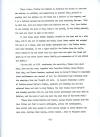 |
| gmc_107 |
and never more
returned to Carter's Valley". End quote.
In the campaign with Colonel Christian and
others that followed, a force of perhaps 2,000 men including the
militias of the Carolinas and Georgia, Thomas' brother Robert, now
nearing 17, got his first taste of military life, serving as a
wagoner, and driving his father's team. He was present and saw the
treaty with the Indians signed at Long Island in 1777, after their
towns had been burned and country ravaged and their power broken.
The father, Samuel remained on his farm near
the site of the town of Wytheville, Virginia, until his death in
1731.
Thomas, not quite ten years of age when the
Declaration of Independence was signed, makes no reference in the
Draper Interview to any service he performed during the Revolution,
but his two older brothers, Robert and James fought on several
fields. As an important part of family history it is deemed
essential to give here the record of their services, as given in
their pension applications, photostats of which we have on file. The
following are part copies:
Robert, as we have already seen, served as a
wagoner in the Cherokee expedition in 1776 and again in 1777, and he
was present at the signing of the treaty between the whites and the
redskins at Long Island, that year.
In 1778 he served as sergeant, Captain
Stephens' company, Colonel James Robertson's command, stationed at
Fort Robertson at the head of the Clinch and Sandy Rivers,
Montgomery County, Virginia, This expedition was against the Shawnee
Indians, from April to October, a six months tour.
In 1730 he served as a lieutenant in Colonel
Campbell's command in an expedition against the Tories between Tom's
Creek and Cripple Creek, branches of New River, He was then
stationed at the Moravian Old Town in
-12-. |
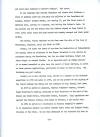 |
| gmc_108 |
North Carolina, In
the same year he was on a six months tour in an excursion up the
Yadkin River to the shallows. In 1781
he was a lieutenant in General Pickens' Brigade at Guilford, North
Carolina, against Cornwallis. Was in battle at Whitesell Mill and
Ready Fork of Haw River (2 months).
In 1782 he was Lieutenant and Acting Company
Officer in company of Captain William Love (possibly the son of
Joseph Love and therefore his first cousin). He was on the Clinch
and Sandy River post (3 months).
James Love, in 1779, as stated in his pension
application, had Revolutionary service as follows (and these are
almost verbatim quotes from Albert Gallatin Love);
1779 was a private in Colonel Campbell's
command. Was on Cripple Creek branch of New River. The command
marched toward the head of New River apparently to guard the lead
mines. He speaks of a Captain William Love and a Captain Sawyer.
There was also a Lieutenant Robert Love, Robert does not mention
having served in 1779. And neither he nor James speaks of having
served together (3 months).
1780- Called in August. Private in Captain
James Montgomery's company, Colonel Crockett's regiment. Guarded
lead mines in Montgomery County. His regiment marched against Tories
on the Yadkin River. They marched to a Moravian town where they met
the command of Major Floyd who had defeated the Tories at Shallow
Ford, They arrived on Saturday and on the following Monday the
combined commands marched to reinforce Colonel Campbell in the Kings
Mountain campaign.
On Wednesday they met Colonel Campbell's
commands returning from Kings Mountain where they had killed Colonel
Ferguson and destroyed his British and Tory command. They returned
with Colonel Campbell to the
-13- |
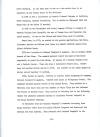 |
| gmc_109 |
Moravian town of
Bethlehem where they remained for some time guarding prisoners
captured at King's Mountain. After that they returned to guard the
lead mines (6 months). Thomas Love in
his Draper interview said that his brother James told him that while
guarding the prisoners, the latter would attempt to overpower the
guard.
A messenger was sent hastily for Colonel
Campbell. He came charging up on his horse, slashing right and left
with his saber, and almost single handed overawed the prisoners,
Thomas Love was only 15 years of age when the
Revolutionary was over, yet some persons claim that he was a
Revolutionary soldier. However, no pension of his has been found and
no other documentary evidence that I have seen to establish such a
claim. Albert Gallatin Love says in his book that he has found none,
and thinks that our Thomas may be confused with another Thomas who
was
a soldier, but who was an Irishman, and went to Ohio after the war.
Still another Thomas was a South Carolinian, a blind man0
So our Thomas must remain for the present a doubtful, if not a
"doubting" Thomas, in respect to this soldiering,
You have seen in the foregoing pages the
dispositions ordered by Samuel Love in his will of 1781, of his
estate. On June 4, 1782, Sarah, James, Mary, and Thomas by consent
of the Court chose Robert to act as their guardian.
Soon after this Thomas sold his part of the
Samuel Love estate to one David Love, no relation. He seems to have
realized very little from the sale. In 1782, the year following his
father's death, he went with his brother Robert and William Gregory
and his family to East Tennessee. The month was October or November
1782. His sister, Mary, married Robert
-14- |
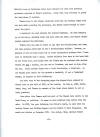 |
| gmc_110 |
Montgomery in
Montgomery Co., Virginia in 1734. If Sarah married there is no
record of it. Robert was 22 years of age at the time of this move,
and Thomas 16. We do not know if they
boarded for awhile with the Gregorys, or not, but the following
year, 1783, Robert was married to Miss Mary Ann Dillard, daughter of
Colonel Thomas Dillard, of the Greasy Cove community where they had
settled, and probably they immediately began housekeeping. The happy
event was celebrated on September 11, 1783, James, the other elder
brother of Thomas married Winnesophia Dillard, sister of Mary Ann,
at an unknown date, and Thomas succumbed to the charms of Martha,
the other sister (Patsy) and they were married on January 12, 1788.
So everybody was provided with a home and there was no problom0
In 1788 Robert Love commanded a regiment of
Washington County men in General Martin's campaign against the
Chickamauga Indians, and thus became a colonel.
In 1785, three years before, he and Thomas
had been Tipton partisans in the Sevier-Tipton dispute over "the
Lost State of Franklin", about which we are going to have somewhat
to say later.
In 1790 they moved to what was then Buncombe
County, North Carolina. Somewhere they
had learned the art of surveying and they were like most men of the
day, ambitious to own land. In Buncombe Co., alone, by 1802 they had
received grants for over 2,000 acres. In 1809 Haywood County was
formed from Buncombe, and the Love brothers were the surveyors,
taking their pay, according to tradition, in lands. All or most of
the land they had received previously, by reason of the change in
boundaries, was now in Haywood County. A county must have a court
house and the Loves founded Waynesville. They now were possessors of
a small landed empire-probably
-15- |
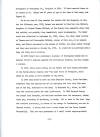 |
| gmc_111 |
as large as a
dukedom or larger. I haven't made a
special search along this line but in my files I have a list
furnished me by Mr. Thad Eure, Secretary of State, Raleigh, N. C. of
land grants made in Buncombe County, the county seat of which is
Asheville, to members of the Love family. The list follows: Love,
James- 100 acres issued 19 Jan. 1795- On the Wolf Pit Branch- Grant
#139, book 83, page 325, File #94. Love,
James R.- 50 acres issued 18 Dec. 1833- On s. w. side French Broad
River- Grant #2178, book 141, page 59, File
#2173. Love, James R.- 50 acres issued 18 Dec. 1833- On French Broad
River- Grant
#3179, book 141, page 60, File #3176. Love,
John- 150 acres issued 8 Dec. 1810- Lying on both sides of Loves
Hill
Creek- Grant #1892, book 124, page 436, File
#1810. Love, Robert- 150 acres issued 7 Jan. 1794- On a branch of
Swananoa Grant
#38, book 82, page 129, File #37. Love,
Robert- 150 acres issued 27 Nov. 1807- On a branch of Richland
Creek,
Grant #2678, book 137, page 85, File #2664.
Love, Robert- 60 acres issued 13 Jan, 1827- On N. side of Clear
Creek-
Grant #2678, book 137, page #85, File #2664.
Love, Robert-&c- 100 acres issued 5 Apr. 1797 - Both sides of a
branch of
Jacks Creek- Grant #776, book #103, page 262,
File #724. Love, Robert- 200 acres issued 22 Dec. 1799- Lying on
both sides of Richland
Creek, Grant #776, book #103, page 262, File
#724. Love, Robert-Robert- 300 acres issued 19 Dec. 1801- On W. side
of Pigeon
River- Grant #963, book 114, page 119, File
#928. Love, Robert- 300 acres issued 30 Aug. 1802- On both sides of
Jonathan's Creek, Grant #968,
book 115, page #250, File #933.
-16- |
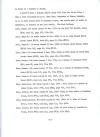 |
| gmc_112 |
Love, Robert &c- 300
acres issued 30 Aug. 1802- On both sides of Jonathan's
Creek- Grant #169, -----book 115, page 250, File
#934-.
Robert &c- 200 acres issued 20 Aug. 1802- On
Richland Creek- Grant #970
book 115, page 251, File #935. Love, Robert
Sec- 100 acres issued 2 July 1807- On W. side of Pigeon River-
Grant #1611, book 122, page #324-, File
#1589. Love, Samuel- 25 acres issued 13 Jan. 1827- On S. & N. sides
of Clear Creek-
#2679, book #137, page 85, File #2665. Love,
Thomas- 100 acres issued 10 July 1797- Beg. on a gum tree-
Grant #300, book 91, page 606, File #329.
Love, Thomas, 100 acres issued 14 Dec. 1811- On head of Pawpaw and
Pine
Creeks- Grant #1959, book 126, page 113, File
#1902. Love, Thomas- 200 acres issued 6 July 1812- On W. side of
French Broad
River- Grant #1980, book 126, page 370, File
#1953. Love, Thomas &c- 100 acres issued 5 Dec. 1806- On first fork
of Little Ivey (Paint) - Grant #1521, book 121, page 368, File #H91.
The above land grants as stated were made for
vacant lands in Buncombe County alone, at that time....but the three
brothers had many other grants in other counties. A list of North
Carolina Land Grants in Tennessee, 1778 - 1791 are found on a
microcopy of the records of the General Land Office in the Library
of Congress, as follows:
Land Grant 737- Robert Love- 1786- 300 acres,
both sides of Indian Creek-
Washington County, Land Grant #1727- Thomas
Love- 1787- 300 acres, south side Nolachucky. Land Grant #25- David
Love - 1783, 640 acres, Davidson Co. 3oth sides Bledsoe's Creek.
-17- |
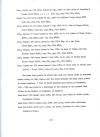 |
| gmc_113 |
Land Grant 699-
Thomas Love- 1738- 640 acres, Davidson Co. - Both sides Sycamore
Creek Land Creek #1100- Josiah Love-
1789- 640 acres- Sumner Co. N. S. Cumberland River.
There are records on file in the Circuit
Court at Trenton, Gibson County, in West Tennessee, of land titles
acquired by Robert and Thomas Love prior to 1788. Tennessee was not
organized as a territory until 1790 and became a state in 1796. All
of the territory west of the Tennessee River and east of the
Mississippi was known as the Western Territory. The land was ceded
to the whites by the Indians in 1818 and opened for settlement in
1821, yet notwithstanding the fact of ownership by the Indians prior
to 1818, land surveys were made in the area in 1783 and 1784 by
Colonel James Robertson and Henry Rutherford, and land was entered
by a number of men including 5,000 acres on the site of the present
city of Memphis by John Rice and the same number by John Ramsey5.
The will of Thomas Love shows that he was a landowner in several
counties.
In the third population census of the United
States for Haywood County, Worth Carolina, the names of Robert Love
and Thomas Love appear as householders, Robert was now of an age
over 45, and Thomas under 45. Robert had five sons and six daughters
of varying ages, and his wife was still living, Thomas had six sons
and four daughters, and a living wife.
Of the sons of Robert, Thomas D, Love was
probably a man grown as he served as the census enumerator for that
year. An interesting footnote is written on his report, which gives
an insight into the conscientious character of the young man, and
the painstaking character of his report, a quality we should like to
say to be the character of all of the Loves,
-18- |
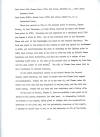 |
| gmc_114 |
The note follows:
Haywood County, 6th. of November 1810
Sir:
In making out the within list in Alphabetical
order I had intended to leave a space between each letter, but
having by some means omitted several names, particularly under the
letter F which is the cause of four or five names being so crowded,
the thing being so New to me and the country a New One also, I have
not been able to draw to my Assistance the Aid of any Experienced
person, therefore I hope any Errors or want of accuracy will be
overlooked.
With respect
Your ob't serv.
Thomas D. Love
The census of 1820 shows that Thomas Love now
had lost two sons from the parental roof and had given up two
daughters; Robert had only one son with him, and two daughters but
the loss is partly compensated by James Love who appears for the
first time as a householder, living alone, at 26 years of age. As
Thomas had the same number of sons as before, James must have been a
son of Robert.
But I am getting a bit ahead of my story -
the following is another note addressed to Beverly Daniel esquire
Marshall of North Carolina by Thomas D, Love, enumerator of the
census for Haywood County, 1810:
Haywood County, N. Carolina
6th. of Nov. 1810
Sir:
The Act of Congress required two Copies of
the Enumeration of the inhabitants of each district shall be posted
up in two places within such district for the inspection of the
Citizens of such district, this I have
-19- |
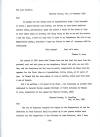 |
| gmc_115 |
done and they are
still up, and as proof is required before I can be
entitled to the compensation allowed by the said Act, in such case I
call on
Gen1. Thomas Love and John Welch Esq.
With respect &c Thomas D, Love
As Thomas Dillard Love said, Haywood County
was a new country, and it will not be denied by any one who has ever
been there, that it is a rugged one. In another note to the marshal
he explained that the enumeration would have been completed earlier
but for these circumstances and the fact that the county was
sparsely settled, and houses great distances apart.
Let us retrace our steps now to the year
1785. Robert was then 25 years of age and had been married two
years. The home was in Greasy Cove on the Nolachucky River.
Nolachucky, or Nolichucky, take your choice, isan Indian name
meaning "swift and rapid4" . Greasy Cove was then in
Washington County, North Carolina, but lay in the territory later
ceded by North Carolina to Tennessee, and now is in Unicoi Co.,
Tennessee, a short distance from Erwin.
The year before Thomas Dillard had died and
Robert Love served as executor with Martha Dillard, the widow. The
will was probated Sept. 23, 1784. Robert Love was appointed guardian
of the minor children.
In 1785 when Robert was 25 and Thomas 19, an
event occurred which is important both in the history of Tennessee,
and in the lives of these two brothers who played a prominent part
in preventing a permanent organization of "The State of Franklin".
The State of Franklin for the period of its existence comprised all
the counties of the then western border, the frontier counties of
North Carolina - all of the settled area.
As has been stated it was a very rugged
country and very difficult
-20- |
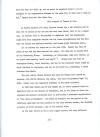 |
| gmc_116 |
to penetrate, at a
great distance from the Carolina capital, so very naturally perhaps
the people had been neglected by the State government, indeed it has
been said that at one time North Carolina was willing, so it seemed,
to "give the country back to the Indians".
The settlers therefore, very logically, decided
to form a government of their own in the form of a state which they
named Franklin, in honor of Benjamin Franklin.1
John Sevier who had joined the Watauga
settlement in 1773 had been a prominent and popular man in the civic
affairs of the settlement since his arrival. He was a famous Indian
fighter with a successful technique, said to have had to his credit
35 victories. He would gather a body of men selected for superior
physical fitness, mounted on fine steeds, dash into Indian country,
destroy their crops and villages, and dash out again before the
braves had recovered from their surprise. He had never suffered
defeat. And also had been one of the leaders and heroes in the Kings
Mountain battle with the British in 1730.1
He was such an outstanding leader, so well
qualified to lead them in the difficult frontier situations, in
which often it was necessary to defend their homes against the red
man, and maintain order amongst the white settlers meanwhile, that
he was the natural and logical choice of the people to serve as
their governor, although he was not entirely in favor of the
movement, or doubted that it was practical. 1
Robert Love is said to have been active in
the new movement and to have held several civic positions and it is
presumed that Thomas Love also played a part. At this time Thomas
vas only 21 years of age but is referred to by historians thus early
as "General". The origin of the title- how earned if earned or
complimentary this writer has not found, but I do know
-21- |
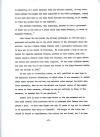 |
| gmc_117 |
that as early as
1810 it is definite that he bore the title and was "General" Love
for the rest of his life. The people of
the new state were not all in favor of the new state. North Carolina
was aroused and wanted to regain control. An application had been
made to the Continental Congress for admission to the Union as a
state but was not acted upon favorably. There was a division between
those who desired to continue the State of Franklin and those who
were in favor of returning to the Old North State. John Sevier was
in the nature of things obliged to side with those who favored a
continuation of the State of Franklin. Robert and Thomas Love
favored reunion with North Carolina. This group was led by Colonel
John Tipton. In the interview with Lyman Draper, Thomas Love gives
an interesting account of a small skirmish that took place during
the heat and excitement that raged in the community for a while,
between the two opposing sides. Through the kindness of Albert G.
Love, who has made it available to me, I am able to give you the
story verbatim, as told to Draper by Thomas Love:
THE TIPTON BATTLE
"Tipton's court used to be held at Mm. Davis1
on Buffalo Creek, now in Carter County- 3 (illegible) from Colonel
Tipton's, and some 11 miles East of Jonesboro. At one of these
courts at Davis', John Tipton and John Sevier, sons of the rival
leaders, had a fist fight, about a drawn battle."
"Gen, Sevier with his men, probably 150 as
stated by Haywood and Cols. Chs , Robinson, Saml
. Wear, and Majr Elholm under him, camped some 3 or 4
hundred yards from Tipton's house, in a sunken or hollow place, wh.
protected them from annoyance from Tipton's, At Tipton's when Sevier
first came were Col. Robert Love, James Stuart an old member of the
Legislature, both of N, C, and Tenne and Capt. Peter
Parkerson and Alexander Moffatt- with Jacob
-22- |
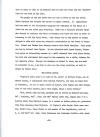 |
| gmc_118 |
and
John Tipton, the sons of the old colonel, and perhaps Isaac
Tipton-and likely a few others-— Gen. Love thinks there certainly
could not have been more than 15 persons with Tipton, if that."
"Tipton's house was a large sized house, some 25
by 30 feet, hewed logs, a story and a half- no windows below- two or
three window holes, round, in each gable end above- a door in
front-. Gen, Love inclines strongly to the opinion that the battle
was the first week in March- and if Col, Johnathan (this might be
Johnston) is correct as to the time that Sevier made his appearance-
i.e. 28th. of Feb, 1788- and taking the time as occurrences took
place as stated by Haywood- and that being
leap year
the battle must have (been) fought the morning of March 3rd-
or possibly the morning of 2d. of March".
"The summons-refusal and correspondence all
took place as stated by Haywood. During this siege, Sevier kept out
scouts and sentinels to watch and prevent reinforcements. Of nights,
however, Tipton's friends came in one by one, undiscovered, through
the fields - Jonathan Pugh, the North Carolina sheriff of Washington
county was of the number, A couple of women going there in day time,
probably to see some of their friends, one of them was wounded in
the shoulder by Sevier sentinels at the Limestone rocks."
"Thos. Love who then resided in
the Greasy Cove 'Chucky (Nolichucky) just below the mouth of West
Indian Creek, and some 15 ms (miles) from Tipton's,
hearing of the trouble at Tipton's, and his brother being among the
besieged, raised a party of 10 or a dozen men in the neighborhood
and started for Tipton's in the evening late- reached Maj. Thos.
Stuart's, within five miles of Tipton's, a brother of James Stuart,
he and a few others joined there and on the way to the scene of war,
-making altogether some 18 men. Before reaching Stuart's, met Co.Rob,
Love, who had just stole out
-23- |
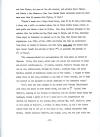 |
| gmc_119 |
from the house and
was going to the Greasy Cove settlement where he lived to raise men-
Col, Love gave his brother the necessary information as to Sevier's
position- the rocks & sentinels there- and then Col. R. L. went on
towards the settlement- no one with him...When Thos. Love and party
reached the smmit of the high ground a few hundred yards- perhaps 2
or 3- to the limestone rocks- and on the road east of the rocks-
halted. It was proposed that a party go to the rocks and reconnoitre.
It was now about 3 o'clock in the morning, dark and lowery and very
cold. Mr. Love proposed he would go to the rocks, if any one would
go with him- it was deemed a dangerous service, and all excused
themselves, some from bad guns, poor buses (?) etc. It was now
talked about returning home - when Love said they had come to aid
Tipton and he was anxious to do it, and if they would wait there he
would go alone and ascertain whether any sentry was placed at the
rocks. He dashed off down a descending road, on a fine prancing
horse, with his musket loaded with buckshot and two balls and finger
on the trigger resting across the pummel of his saddle- when he got
opposite, in the road, and some 20 or 30 paces from the rocks on the
north of the road, reined up, hemmed and coughed to attract the
attention of the sentry if there was one, intending if hailed to
shoot at random and dash on to Tipton's but there was no sentry, but
a few minutes before young John Sevier and the sentinel with him had
gone to camp to warm themselves. Love returned to his companions
with the intelligence that there was no sentry, and all put spurs to
their horses and raising a loud shout dashed on past the rocks, into
the lane and down to the house, where they were gladly received.
Tipton had already some 35 men there, and this reinforcement under
Love, gave him such fresh vigor, that he declared he would fight
Sevier in the morning", "Until morning,
with their large comfortable fire, and talking and preparing for the
fight, they kept up a vigilant watch. Tipton's men, it is
-24- |
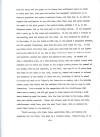 |
| gmc_120 |
not recollected,
fired at all on Sevier's men during the siege. Just at daylight the
snow began to fall, and at this time a small party of horses from
Sevier's camp passed through the field between the house and
Sevier's camp and fired off a volley at the house, the balls
striking the roof and gable end without doing harm, and then rode
on, on a scout. By this time, Col. Maxwell, Col. Scott and Maj.
Pemberton, with a party of about 100 men from Sullivan (some 40 ms,
off) were within a mile; and hearing the firing concluded the battle
had begun and dashed on to the rear of Sevier's camp and at a long
shot, fired upon Sevier's men, with a shout. At this announcement
Tipton opened the door and turning himself exclaimed, "Boys, every
man who is a soldier come out" and all rushed down the lane towards
the camp, a portion under Col. Tipton cutting across the field from
the stables to head Sevier's men and Love with another portion
dashed on down the lane to the camp and then took part in the fight
and pursuit which followed.,...."
"Maxwell's men had just before firing, mostly dismounted, some tied
their horses to trees &c and some let them go. The fire from
Maxwell's men, together with their loud shouts made a great noise,-
but the shot- some 200 yards, was too far for execution, Sevier's
men returned the fire and the fighting, or firing lasted a few
minutes - Sevier's men taken by surprise and in confusion and seeing
the Sullivan men on their west and Tipton' s men from the house on
their east, they fled scattered, towards the north through the woods
and along the fence, until they crossed and descended a ridge some 2
or 3 hundred yards from camp- The men pursued on foot as far as the
ridge, and then returned and made up a horse company and renewed the
pursuit and took a few prisoners in the woods,"
"John Webb of Maxwell's men was mortally
wounded on the top of his
-25- |
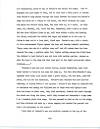 |
| gmc_121 |
head, and died the
same day; and Dr. Delaney of the same party was slightly wounded in
the arm. Jonathan Pugh of Tipton's party was shot through the breast
and survived but a few days." "In a few
minutes after the rout of Sevier, and when the victors were around
the camp fires, when the troop of horsemen who fired on Tipton's
house and had just returned from a scout, rode up to camp and did
not discover their mistake until the presented guns of Tipton's men
and an order to surrender, compelled them to dismount and give
themselves up- one of the mounted men named Vaut, either from the
fright of his horse or intentionally dashed off, though within 30
paces, and a volley of guns were shot-making the wool fly in every
direction from his red coat, and slightly wounding his horse, and
himself in the arm. He made his escape. He was the only one of
Sevier's men injured".
"Gen, Love is very certain, nay-very positive
it is erroneously stated by Haywood, that Sevier made an attack on
Tipton's house, when Maxwell came upon him. Nor can he think there
was anything like a battery formed nor even a piece of ordinance".
"Among the prisoners taken (and Gen, Love
thinks between 20 and 30) were James and John Sevier, whom Tipton
probably incensed to so rash an act from seeing his right hand man
Pugh mortally wounded, and Webb almost expiring, determined to hang.
The young men heard of this, and sent Thos. Love to
intercede for their lives. Love took the Colonel to one side,
represented the rashness of such an act, and appealed to him, how he
would feel, supposing Sevier had possession of his sons and should
execute them for their father's act? With tears trickling down his
cheeks Tipton replied "I'll desist from the act, from my impulsive
feelings, I'm no more fit for a commander, than a hog for a king".
Tipton was brave to a fault, and though
-26- |
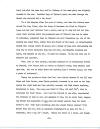 |
| gmc_122 |
it was his
misfortune to be rash in his acts, he was always ready to yield to
the dictates of reason and humanity, when properly made known to
him". "The young Seviers, and all the other prisoners, were
liberated that evening, and the horses, some 40 or 50, and other
articles left in Sevier's camp were given up to their owners, Robt.
Young (?) as stated by Haywood came in with a flag and no doubt the
propositions sent by Sevier led to this procedure, Rob, Love didn't
return till after the fight", "It
should be added, that when the fight took place in the morning it
was quite a dark morning, and the snow falling rapidly and in large
flakes and fully an inch on the ground. When Tipton's first made
their appearance the Sullivan men mistook them for a part of
Sevier's troops and came near firing on them, and wd. have done so
but for the active exertions of Maxwell, Scott and Pemberton, who on
horseback waved their hats and bid them desist as they were
friends."
At the time of the battle Thomas Love was
slightly over 21 years of age but is spoken of by Ramsey and Arthur
as
General Love, Williams, however,speaks of
him as Mr. Love,6 It is certain, however, that the
title of "General" was bestowed upon him prior to 1810, when his
son, Thomas Dillard Love in an official communication to the Deputy
Marshal at Raleigh referred to his uncle as "General Thomas Love".
When the Sevier government collapsed later in
the year the old Indian fighter was taken into custody. He is said
to have stated that "I am surrendering to Colonel Robert Love". He
was given all the attention and courtesies due to one of his
services and position as he was escorted across the mountains but he
escaped and returned to his home. The authorities were relieved of
an embarrassing situation as they had no desire to prosecute one who
had been one of the more prominent leaders at the battle of
-27- |
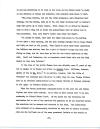 |
| gmc_123 |
King's Mountain and
the hero of many battles with the Indians.
It was in this year (1738) that Robert Love
commanded a regiment of Washington County men in General Martin's
campaign against the Chickamauga Indians, known as the Chattanooga
campaign. It also marked the appearance of the young Attorney
General and Public Prosecutor Andrew Jackson upon the Washington
County scene, at 20 years of age. He arrived at the county seat,
Jonesboro, in the spring of that year, in the company of the newly
appointed Judge McNairy of the Superior Court of the Western
District of Worth Carolina, to whom he owed his appointment. Marquis
James says in his "Life of Jackson" that he appeared with two
pistols slung from his saddle, a beautiful rifle lashed to the pack
of his stout "bat" mare and trailed by a troop of hunting dogs—
adequately prepared to defend the dignity of the "Old North State"
while in transit through the seduced domain of "Nolichucky Jack"-
(John Sevier).6 The ultimate destination of the court was
Nashville, for which place the court left Jonesboro in September,
1788, with the first party to travel over the new Cumberland Road.
Now Andrew Jackson was very fond of horse
racing and brought a fine thoroughbred racer with him when he came
to Jonesborough. Albert Gallatin Love, in his book, gives an amusing
and interesting quote from Judge Allison's book "Dropped Stitches in
Tennessee History" about a race between the Jackson horse and one of
Robert Love's...,which I am quoting here. Judge Allison says, "The
race was widely advertised and every one who could do so attended.
The name "Moon Shine" was then unknown but there was plenty of that
liquid by another name. Everything available was bet by those
attending including liquor, coonskins, otter skins, etc. The race
was held in a natural amphitheater in the Greasy Cove locality, On
the day of the race, Jackson's negro boy (jockey) was ill
unfortunately and unable to
-28- |
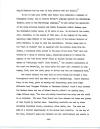 |
| gmc_124 |
ride. Consequently
Jackson rode his own horse. The race was close but near the end the
Love horse forged ahead and won. Jackson was not a good loser and
angrily denounced the "Love brothers" as "band of land pirates"
because they held title to so much choice land in that section.
(Jackson himself entered large tracts of land very soon). Robert
Love stood his ground and retorted by calling Jackson a d-m long
gangling sorrel-topped soap stick." The name came from the use of a
sassafras stick to stir the soap kettle. Mutual friends recognizing
the fighting qualities of the two men eventually separated them
without either one being hurt. Afterwards they became
friends-......... Andrew Jackson when President appointed Robert
Love on a Boundary Commission to settle the boundary between United
States and Mexico." End quote. Robert
Love represented Washington County, North Carolina in the State
Legislature in 1739, and Buncombe Co. in 1793-94-95.
James Love moved from Washington Co. North
Carolina, apparently in 1783, or after having been there six years.
He seems to have had roving feet for after another five years he
moved from his Buncombe Co. (then Burke Co.) home to Logan County,
Kentucky. After five more years he moved in 1798 to Williamson Co.
Tenn, and after he had spent his five year limit there he moved to
Maury Co. where records show he was a circuit court juror in 1807.
He was a member of the first court to sit in Maury County,
Thomas Love represented Buncombe Co., North
Carolina, in the State house of Representatives in 1797-1808
inclusive. He introduced a resolution in 1808 establishing Haywood
County. The resolution was ratified December 23, 1808, and the new
county was established March 4, 1809. Thomas was one of the judges
assembled to establish it, and his brother Robert one of the two
clerks of the court. A county seat was selected and named
Waynesville,
-29- |
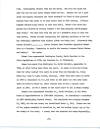 |
| gmc_125 |
the name suggested
by Robert, in honor of General ("Mad") Anthony Wayne.
Thomas represented Haywood Co. in the State
Legislature 1809-1811 inclusive, 1817-1820 inclusive, and in the
State Senate 1823-1828 inclusive.
Robert was a presidential elector beginning
with the first election of Thomas Jefferson in 1800, and continued
as such through the first election of Andrew Jackson in 1828, His
son, J. R. Love stated in a letter to Lyman Draper that his father,
after that refused to accept any additional political office.
Thomas was something of a rover himself, like
his brother James, but not quite his equal. He moved from Haywood
Co. in 1830 to Macon Co. His wife Martha Dillard Love (nicknamed
"Patsy") died in Macon Co. and is buried in a Methodist Church
cemetery near Franklin. His youngest brother William, who seems not
to have made history like his older brothers, also died there, a
single man, about 1828- or 29, according to Albert G. Love. Martha
Dillard Love was alive at the time of the census of 1830. Thomas was
quite prosperous as the number of his slaves is given as 36. The
historian Arthur says that his son Robert who was living with him,
was a captain in the War of 1812. Robert does not appear in his
will.
Thomas moved to Henry Co. in West Tennessee
sometime before 1839. He served as a member of the Tennessee State
Senate that year (1839) representing the counties of Henry, Weakley,
and Obion. He was Speaker of the Senate for that legislative session
that met in Nashville, and was the first speaker of the Tennessee
Senate from the area west of the Tennessee River, Albert Gallatin
says, in his book: "Why or when he moved to West Tennessee, I do not
know. It will be recalled that he and Robert had entered land in
that area prior to 1788 while it was controlled by North Carolina.
He had extensive land holdings in that area, and is still remembered
by name
-30- |
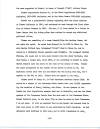 |
| gmc_126 |
by the older people
in the area as a legendary one although he died 108 years ago."
"There is a clay that is quite superior for the
manufacture of china-ware and porcelain. It was being dug and
shipped out by oxen-drawn wagons before he moved there. It is still
being dug and shipped for the same purpose. Possibly this industry
may have influenced him to make the move. But it was a new virgin
country and had been officially opened for settlement in 1821."
..................................................
"The Census report of 1840 shows him (Thomas)
as living in Henry Co, No other member of his family was listed with
him. The name of Albert Gallatin Love........was listed next to that
of Thomas. It appears from that evidence and from evidence in the
will of Thomas Love that he and Albert Gallatin were living
together."
Again we quote from historian Arthur re
Thomas and Robert Love: "They were born in one of the most advanced
outposts of christian civilization, They spent their boyhood, early
adult life, and a large part of their remaining life in such
communities. Surrounded by constant dangers, with all of the
hardships of frontier life, and with few of the comforts that are
commonplace with us today, they developed as unusual men. It appears
from fragments of information that we have available that they were
men of unquestioned physical bravery, who became leaders in their
communities early in their lives, but above all in frontier
communities where there was so much brutality and disregard of human
rights, they were kind humane men, with an innate courtesy, regard
and consideration for the rights of others, Thomas Love influenced
Colonel Tipton to reprieve the two sons of John Sevier and later to
release them and to allow the other prisoners to return home with
their horses. These acts of kindness and mercy no
-31- |
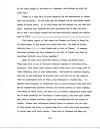 |
| gmc_127 |
doubt did much to
restore tranquillity in the area torn by dissension. Then when
Colonel John Sevier surrendered, he stipulated, "I surrender to
Colonel Robert Love" by whom he was treated with courtesy and
consideration as he so richly deserved, on account of his splendid
service to the frontier area and the county at large. One cannot
read the record of the interview of Thomas Love with Dr. Lyman
Draper in January, 1844-, just prior to his death without being
impressed with his humanity and kindliness, and also with his wide
knowledge of frontier events and character,"
After the manner of all men, Robert and Thomas
began to be "full of years", A life of stirring action behind them
they began to lift up their eyes and steer their courses toward the
Eternal City, Thomas made his will on the ninth of May, 1844, and it
was probated on the 18th, day of September the same year, A verbatim
copy follows,
A feature of Thomas Love's will is the care
that he exorcised for the protection of the 41 or more negro slaves,
providing for the comfort and sustenance of the faithful old
servants, and that younger families should not be separated in the
sale that he directed should be held, in the division of his
property. He appears to have made every effort to be impartial where
his children were concerned. He will not wear "the Assembly boots"
more. Tradition says that he had a pair of boots which he wore to
the Assembly only, and they were called the "Assembly boots".
Another story is that his son (don't know which) ran for the
Legislature and was defeated. When the next campaign for the office
came around General Thomas said he believed he'd enter the race,
which he did, and, of course, won overwhelmingly.
The following is his will:
-32- |
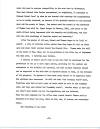 |
| gmc_128 |
WILL OF GENERAL THOMAS LOVE
In the name of God Amen I Thomas Love of the
County of Henry and State of Tennessee being of sound mind and
memory blessed be God do this ninth day of May in the year of our
Lord one Thousand Eight hundred and Forty four make and publish this
my Last Will and Testament in manner following that is to say--- -
I give my soul to Almighty God who gave it
and my body to the earth all my just debts and funeral expenses to
be first paid.
First I give and bequeath unto my Executors
(to wit) my son Samuel C Love my son Albert G Love and my son in law
George V Prater four hundred and seventy five acres of land lying in
Henry and Weakley Counties State of Tennessee the Plantation where
my son James B. Love now lives on also one Negro man by the name of
Andy aged about thirty two years which land and Negro Boy are to
enure to the sole use and benefit of my son James B. Love during his
natural life Provided my son James B, Love should wish to remove to
any other Country my Executors are hereby authorized and impowered
if they think proper to sell the said four hundred and seventy five
acres and purchase land elsewhere to the amount the same is sold for
it is to be understood that the said Negro Boy Andrew is to remain
intirely under the control of my said Executors also I impower my
said Executors to set apart two thousand dollars out of my real
estate bonds or obligations to be put out upon Interest and the
Interest arising from said two thousand dollars to be paid to son
James B. Love annually during his natural life and if the said two
thousand dollars shall not be put out on Interest by my said
Executors then and in that case my said Executors is to pay my son
James B. Love one hundred dollars annually out of said two thousand
dollars and at his death the said four hundred and seventy five
acres of land or such lands as it may
-33- |
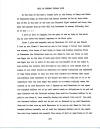 |
| gmc_129 |
be exchanged for and
said Negro Boy and said two thousand dollars if there should be that
much remaining of said money is to enure to my children (to wit) To
the heirs of the body of my Daughter Dorcas now deceased formily the
wife of John M Welch my son John D Love my son Thomas B Love My
Daughter Sarah wife of David Coleman my son Samuel C Love my
Daughter Martha wife of George W Prater and my son James B Love of
all bonds notes and accounty that I may lawfully hold against him at
my death- Secondly I give and bequeath
unto my Daughter Dorcas wife of John M Welch now deceased Two
hundred and fifty acres of land lying in Madison County State of
Tennessee at the price of Twelve hundred and fifty dollars which
land I have heretofore deeded away for her benefit and to the
benefit of her husband John M Welch during the lifetime of my said
Daughter Dorcas also one Negro girl by the name of Jinney also one
Negro girl by the name of Esther and their Increase which Negros I
gave to my said Daughter Dorcas in her lifetime also I give unto
John M Welch the husband of my said Daughter Dorcas now deceased
twelve hundred and fifty dollars worth of land in the County of
Weakley State of Tennessee at the price of three dollars per acre
being part of a five hundred acre tract of land which the said John
M Welch now lives on during his natural life and at his death to be
equally divided amongst the heirs of the body of my Daughter Dorcas
now deceased.
Thirdly I give and bequeath unto my son John
D Love five hundred acres of land in the County of Henry and State
of Tennessee the tract of land he formily lived on at Pleasant View
and which tract I secured to him by a deed of conveyance some years
ago at the price of fifteen hundred dollars also one thousand
dollars worth of land out of a tract of land which I formily owned
in the County of Madison and State of Tennessee at the price of two
dollars and seventy five cents per acre which tract of land I deeded
a way
-34- |
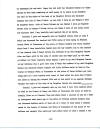 |
| gmc_130 |
to a man by the name
of owdun for the use and benefit of my said son John D Love the
remaining part of said tract of land that is to say three hundred
and seventy dollars worth at the price of two dollars and seventy
five cents per acre is to be accounted for by my said son John D
Love to my use also one Negro Boy by the name of Tom also one Negro
girl by the name of Melinda which Negros I gave to him some years
ago. Fourthly I give and bequeath unto
my Son Thomas B Love five hundred acres of land in the County of
Madison State of Tennessee at the price of fifteen hundred dollars
which land I have deeded away to his use and benefit also four
hundred acres of land in Gibson County State of Tennessee known by
the name of the deer creek tract of land being part of a five
hundred acre tract of land at the price of one thousand dollars also
one Negro Boy by the name of Dick also one Negro girl by the name of
Vina and her increase which Negro I give to him some years ago.
Fifthly I give and bequeath unto my Daughter
Sarah wife of David Coleman five acres of land in Carroll County
State of Tennessee where on they now live at the price of fifteen
hundred dollars during their natural lives and at their deaths to
desend to the Issue of the body of my said Daughter Sarah which Land
I have deeded away to them some time ago to that effect also one
thousand dollars worth of land in the Western district of Tennessee
to be pointed out and set a part out of any of my lands by my
Executors also one Negro girl by the name of Sally and her increase
also one Negro girl by the name of Sealy and her increase (also one
Negro Boy by the name of Henry which Negros I gave to my Daughter
Sarah some years ago.
Sixthly I give and bequeath unto my Daughter
Mary wife of Samuel Conner five hundred acres of land in the County
of Wealdey and state of Tennessee where on they now live being part
of a nine hundred and fifty acre tract of
-35- |
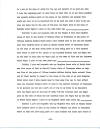 |
| gmc_131 |
land so as the five
hundred acres to include all their improvements of any value made
previous to the twenty fifth of December Eighteen hundred and forty
two and with as little injury to the ballance of the tract as the
nature of the case will admit of, also one Negro girl by the name of
Matilda and her increase, also one Negro girl by the name of Arty
and her increase which Negros I gave to my Daughter Mary some years
ago. Seventhly I give and bequeath unto
my son Samuel C Love three hundred and ninety five and a half acres
of land in the County of Henry and the State of Tennessee known by
the name of the Busnley and Aycock tracts of land whereon he now
lives at the price of Twenty two hundred and fifty dollars which
lands I have allready conveyed to him by deed also one hundred acres
of land out of a five hundred acre tract of land before mentioned in
Gibson County State of Tennessee known as the deer creek tract of
land at the price of two hundred and fifty dollars which tract of
land of one hundred I have conveyed away to use and benefit of my
son Samuel C Love also one Negro girl by the name of Elvery and her
Increase also one Negro girl by the name of Betsey and her Increase
also one Negro Boy by the name of Philip which I gave to my Son
Samuel C Love some years ago.
Eighthly I give and bequeath unto my Daughter
Martha wife of George W Prater six hundred acres of land in the
County of Gibson and State of Tennessee being the North half of a
tract of land known by the name of the Cole tract of land which
tract of land I have deeded away to the use and benefit of my said
Daughter Martha and her husband George W Prater heretofore at the
price of Twenty four hundred dollars also one hundred dollars of
land out of any such lands that I have in the Western District of
Tennessee that my Executors may point out also one Negro girl by the
name of Letty and her increase also one negro girl by the name of
Ann and her
-36- |
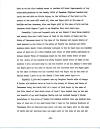 |
| gmc_132 |
increase
which Negros I gave to my Daughter Martha some years ago
Ninthly I give and bequeath to my Son Albert G
Love three hundred and eighty acres of land being a part of the
tract of land whereon I now live out of a six hundred and forty acre
tract of land conveyed to me by H, S. Dickerson Beginning at the
North East corner conveyed to said Doomas by said Dickerson Runs
West with the North boundary line of said six hundred and forty
acres tract passing a stake corner of said tract at the distance of
one hundred and Eighty Eight and one Eight poles thence continuing
on due west so far as by running due South to the South boundary
line of said tract until it strikes the Line of a piece or parcel of
land of about twenty acres I have sold to Champion Terry thence
North with the line of said poles of land to the North west corner
of the same thence East with the same to the East boundary line of
the said six hundred and forty acre tract thence North to the
Beginning also one hundred acres of land out of a Tract of a one
hundred and twenty acre tract conveyed to me by said Dickerson
Beginning on three Maples standing on the west bank of the Barren
fork Runs to the East boundary line of said six hundred and forty
acre tract thence South and East, for Complement also a piece or
parcel of land of about twenty acres for which I have paid Champion
Terrys bond to make me a title to the same at the price of Twenty
five hundred dollars which lands he is to have at my death also one
Negro Boy by the name of Washington also one Negro girl by the name
of Vilet and her increase which Negros I gave to my son Albert G.
Love some time ago.
I give and bequeath all my Negros that I may
own at my death not before Mentioned and given a way with the
exception of four Negros that is to say one old Negro man by the
name of Jim Nancy and one old Negro woman by the name of Lucy and
also a little Negro Boy by the name of Albert shall be
-37- |
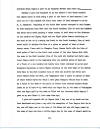 |
| gmc_133 |
laid off in Seven
lots not parting a man and his wife putting some of the greates
value and some of the least value together as to make the lots as
equal as possible to be so lotted and valued by three disinterested
men choosen by my said Executors for that express purpose the lots
to be numbered and drawn for as my Executors may direct amongst my
children that is to say the heirs of the body of my Daughter Dorcas
now deceased formily the wife of John M Welch which lot of Negros
when drawn for that falls to their shall be placed in the hands of
the said John M Welch for his use and benefit by my said Executors
until the youngest child of the body of my Daughter Dorcas now
deceased shall become of age and at which time said lot of Negros
shall be equally divided amongst all the heirs of the body of my
said Daughter Dorcas under the direction and in such manner as my
said Executors may deem most proper but said lot of Negros is not to
be removed out of the County nor disposed of in any way without the
consent of my said Executors John D Love Thomas B Love My Daughter
Sarah wife of David Coleman Samuel C Love My Daughter Martha wife of
George W Prater and Albert G Love Furthermore all the Lands that I
may own at my death in the State of Tennessee or elsewhere and not
before distributed or dissegnated and all other property of every
discription not before mentioned shall be sold after my death by my
said Executors upon a credit not less than twelve months the
purchaser given bond with approved securiety and the money arising
from the sales thereof and also any money notes bonds or other
property which I may own at my death shall be equally divided
amongst my Children that is to say (to wit) The heirs of the body of
my Daughter Dorcas now deceased formily the wife of John M Welch
shall compose one share and that share to be equally divided amongst
the heirs of my said Daughter Dorcas now deceased as they come of
age by my said Executors, and my Son John D Love and my Son
-38- |
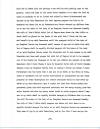 |
| gmc_134 |
Thomas B, Love and
my Daughter Sarah wife of David Coleman and my Son Samuel C Love and
my Daughter Martha wife of George W Prater and Albert G. Love.
Furthermore my will and desire is that the before mentioned old
Negro man Jim Haney and the old Negro woman Jude shall be at liberty
after my death to live with any of my Children that they may think
proper or fit and that they shall not be compelled to do any kind of
labour further than they may think proper to do and should such
child or children whom they might feel a willingness to live with
not being inclined to feed and cloth the said Negros Jim Haney and
Jude without the benefit of their labour then and in that case my
will is that my Executors shall retain in their hands a sufficiency
of the moneys arising out of the before mentioned sales to have them
well provided for as they may think proper both as to food and
clothing during their natural lives for their servitude heretofore
to me and their departed Mistress furthermore my will and desire is
that the before named Negro woman Lucy shall be valued by the three
persons that may be chosen by my Executors to value and lot out my
other Negros and she shall be at liberty to make choice of which of
my Children she may wish to live with and such child agreeing to
receive her shall pay over to my other Children their proportional
part of her value Furthermore my will is that my before mentioned
Negro Boy Albert now about six years old after my death shall be
hired out by Executors and proceeds arising from his labour or hire
shall be paid over annually to my son James B Love and at the death
of my son James B Love the said Negro Boy Albert shall be Sold and
the money arising from the sale of said Boy Albert shall be equally
divided amongst my children that is to say John D. Love my son -
Thomas B Love my Daughter Sarah wife of David Coleman my son Samuel
C Love my Daughter Martha wife of George W Prater and Albert G Love
and Furthermore my will is all my lands that I have pointed to
-39- |
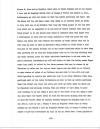 |
| gmc_135 |
be sold on a credit
of not less than twelve months by my Executors or any part of them
may be sold at any time when my Executors may think most advisable——
And I do hereby make and ordain My Son Samuel C
Love my son Albert G Love and my Son in law George W Prater
Executors of this my last will and Testament —
In witness whereof I have hereunto set my
hand and affixed my seal this ninth day of May in the year of our
Lord one thousand Eight hundred and Forty four .......
Thomas Love (Seal)
Test
Signed in the presence of
James Crowder Jurat
Champion Terry Jurat
State of Tennessee Henry County Court June
Term 1944 This day the foregoing Will was Produced in open Court and
was Proven by the oaths of James Crowder and Champion Terry the
Subscribing Witnesses thereto Ordered to be recordered which was
done,
C, Frazure Clerk
The foregoing copy of the will of Thomas Love
as is in the files of this office is a true and correct copy to the
best of my ability to do so.
Witness my hand and seal this 18th, day of September, 1950,
J. N. Medlock (Signed)
Deputy Court Clerk
The children of Thomas and Martha Dillard
Love were:
1. Samuel C, b. Worth Carolina
2. James B, b. Worth Carolina
3. John Dillard b. Worth Carolina
4. Thomas B, b. Worth Carolina
5. Albert Gallatin b. Worth Carolina 1814
m, Myra Jordan, Gibson
Co, Tenn,
-40- |
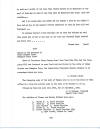 |
| gmc_136 |
6, Sarah b. North
Carolina m. David Coleman,
Carroll Co. Tennessee
7, Martha b. North Carolina m. George W. Prater
8, Mary b. North Carolina m. Samuel Conner
9, Dorcas b. North Carolina m. John M, Welch
10. Robert b. North Carolina apparently a son, not mentioned in
will.Granting that the census of 1810
is correct they had seven sons and there is one unaccounted for.
Probably died in infancy.
The total number of acres of land willed to
the heirs was 6,163 besides there were other lands in Tennessee
willed to be sold by the executors and much other valuable property.
General Love is buried in the Springhill
Church cemetery between Paris and Puryear, Tennessee,
Robert Love died in 1845. Says Arthur, "loved
by his friends, feared by his enemies",
Robert Love, his wife, Mary Ann Dillard, and
five generations of their descendants are buried in beautiful Green
Hill Cemetery, Waynesville, North Carolina,
The following is a condensed summary of the
life of General Thomas Love by John Preston Arthur, in his book,
"Western North Carolina", A History 1730-1913, pp.128-9 which gives
so many interesting sidelights upon his character and career, that I
cannot refrain from borrowing it for my readers:
GENERAL THOMAS LOVE, He was a brother of
Robert Love, and was born in Augusta county, Va., November 15, 1765,
The date of his death is not accurately known, as he removed to
Maury county, Tenn., about 1833. Prof, W, C, Allen, in his
"Centennial of Haywood County", says (p. 55) that he was a soldier
of the Revolution, and served under Washington," but this must have
been towards the close of that struggle, as he could not have been
quite
-41- |
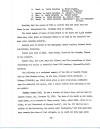 |
| gmc_137 |
eleven years of age
on the 4th of July, 1776. At the close of that war, however, "he
went to East Tennessee and was in the Sevier-Tipton war when the
abortive State of Franklin was attempted," Ramsey's "Annals of
Tennessee" (p. 410) records the fact that on one occasion one of
Tipton's men had captured two of Sevier's sons, and would have
hanged them, if Thomas Love had not argued him out of his purpose.
He was one of Tipton's followers, but he showed Tipton the
unworthiness of such an act, "He came to what is now Haywood county
about the year 1790, When Buncombe was formed in 1791 he became
active in the affairs of the new county," continues Prof, Allen, In
1797 he was elected to the house of commons from Buncombe, and was
re-elected till 1808, when Haywood was formed, largely through his
efforts. There is a tradition that in 1796 he had been a candidate
against Philip Hoodenpile who represented Buncombe in the commons
that year, but was defeated. For Hoodenpile could play the violin,
and all of Love's wiles were powerless to keep the political
Eurydicos from following after this fiddling Orpheus, But Love bided
his time, and when the campaign of 1797 began he charged Hoodenpile
with showing contempt for the common herd by playing the violin
before them with his left hand; whereas, when he played before "the
quality," as Love declared, Hoodenpile always performed with his
right hand* This charge was repeated at all the voting places of the
county, which bore such significant names as Upper and Lower Hog
Thief, Hardscrabble, Pinch Stomach, etc, Hoodenpile who, of course,
could play only with his left hand, protested and denied; but the
virus of class-feeling had been aroused, and Hoodenpile went down in
defeat, never to rise again, while Love remained in Buncombe, "From
the
new county of Haywood
General Love was one of the first representatives, the other having
been Thomas Lenoir, Love was continuously re-elected from Haywood
till 1829, with the exception of the year 1816, Who it was that
-42- |
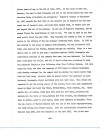 |
| gmc_138 |
defeated him that
year does not appear, though John Stevenson and Wm, Welch were
elected to the house and Hodge Raborne to the senate. This Hodge
Raborne was a man of Influence and standing in Haywood county, he
having been elected to the Senate not only in 1816, but also from
1817 to 1823, inclusive, and again in 1838; but whither it was he or
John Stevenson who defeated Thomas Love, or whether he ran that year
or no, cannot now be determined, William Welch was a nephew by
marriage of Thomas Love, and it is not likely that he opposed Mm.
Gen, Love moved to Macon county in 1830, where his wife died and is
buried in the Methodist church yard of the town of Franklin, He was
one of the commissioners for North Carolina who ran the line between
this State and South Carolina in 1814, "He resided in Macon for
several years, and then removed to the Western District of Tennessee
was elected to the legislature from that State, and was made
presiding officer of the senate. He was a man of very fine
appearance, more than six feet high, very popular, and a fine
electioneer. Many amusing stories are told of him, such as carrying
garden seeds in his pocket, and distributing them" with his wife's
special regards to the voter's wife. His service in the legislature
for such an unprecedented length of time was due more to his genial
manner and electioneering methods, perhaps, than to his
statesmanship; though, unless he secured what the voters most
desired he would most probably have been retired from public life.
He never was so retired.
The End.
-43- |
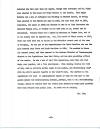 |
| gmc_139 |
REFERENCES
1, "The Love Family of Trezevant, Tennessee"-
Albert Gallatin Love .
2, "A Partial History of the Families of
Joseph Love, of Augusta Co. Va. and His Brother Samuel Love" -
- Mrs. E. L, Connally
3, "The Love Family of Trezavant"- Albert
Gallatin Love
4, "Thomas Love in Draper interview"(Mss).
4 "The Love Family of Trezevant"
5. "The Love Family of Trezevant"
6. "The Love Family of Trezevant"
7. "The Love Family of Trezevant"
8. "The Love Family of Trezevant"
|
Page
68
48-49
51
53
59
53
54-55
|
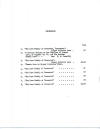 |